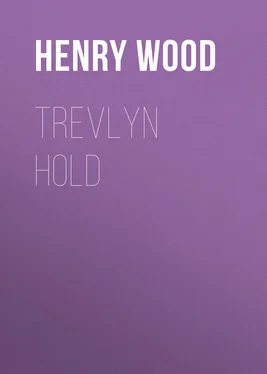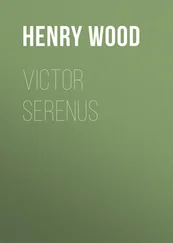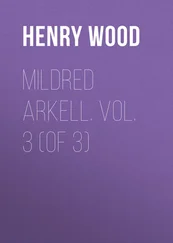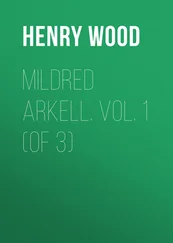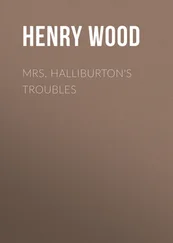Henry Wood - Trevlyn Hold
Здесь есть возможность читать онлайн «Henry Wood - Trevlyn Hold» — ознакомительный отрывок электронной книги совершенно бесплатно, а после прочтения отрывка купить полную версию. В некоторых случаях можно слушать аудио, скачать через торрент в формате fb2 и присутствует краткое содержание. Жанр: foreign_prose, literature_19, foreign_antique, на английском языке. Описание произведения, (предисловие) а так же отзывы посетителей доступны на портале библиотеки ЛибКат.
- Название:Trevlyn Hold
- Автор:
- Жанр:
- Год:неизвестен
- ISBN:нет данных
- Рейтинг книги:4 / 5. Голосов: 1
-
Избранное:Добавить в избранное
- Отзывы:
-
Ваша оценка:
- 80
- 1
- 2
- 3
- 4
- 5
Trevlyn Hold: краткое содержание, описание и аннотация
Предлагаем к чтению аннотацию, описание, краткое содержание или предисловие (зависит от того, что написал сам автор книги «Trevlyn Hold»). Если вы не нашли необходимую информацию о книге — напишите в комментариях, мы постараемся отыскать её.
Trevlyn Hold — читать онлайн ознакомительный отрывок
Ниже представлен текст книги, разбитый по страницам. Система сохранения места последней прочитанной страницы, позволяет с удобством читать онлайн бесплатно книгу «Trevlyn Hold», без необходимости каждый раз заново искать на чём Вы остановились. Поставьте закладку, и сможете в любой момент перейти на страницу, на которой закончили чтение.
Интервал:
Закладка:
Mrs. Ryle expressed herself as not being too confident of him—whether of his industry or qualifications she did not state. George had given one or two hints that when Treve came home for good, he must look out for something else; but Mrs. Ryle had waived away the hints as if they were unpleasant to her. Treve must prove what metal he was made of, before assuming the management, she briefly said. And George suffered the subject to drop.
Treve had now but one more term to keep at the university. At the conclusion of the previous term he had not returned home: remaining on a visit to a friend, who had an appointment in one of the colleges. But Treve's demand for money had become somewhat inconvenient to Mrs. Ryle, and she had begged George to pay Oxford a few days' visit, that he might see how Treve was really going on. George complied, and proceeded to Oxford, where he found Treve absent—as in the last chapter you heard him say to Maude Trevlyn.
Mrs. Trevlyn sat by the drawing-room fire, enveloped in her shawl, and supported by her pillows. The thought of these things was bringing a severe look to her proud face. She had scarcely seen George since his return; had not exchanged more than ten words with him. But those ten words had not been of a cheering nature; and she feared things were not going on satisfactorily with Treve. With that hard look on her features, how wonderfully her face resembled that of her dead father!
Presently George came in. Mrs. Ryle looked up eagerly at his entrance.
"Are you better?" he asked, advancing, and bending with a kindly smile. "It is long since you had such a cold as this."
"I shall be all right in a day or two," she answered. "Yesterday I thought I was going to have a long illness, my chest was so painful. Sit down, George. What about Treve?"
"Treve was not at Oxford. He had gone to London."
"You told me so. What had he gone there for?"
"A little change, Ferrars said. He had been gone a week."
"A little change? In plain English, a little pleasure, I suppose. Call it what you will, it costs money."
George had seated himself opposite to her, his arm resting on the centre table, and the red blaze lighting up his frank, pleasant face. In figure he was tall and slight; his father, at his age, had been so before him.
"Why did you not follow him to London?" resumed Mrs. Ryle. "It would have been less than a two hours' journey from Oxford."
George turned his large dark eyes upon her, some surprise in them. "How was I to know where to look for him, if I had gone?"
"Could Mr. Ferrars not give you his address?"
"No. I asked him. Treve had not told him where he should put up. In fact, Ferrars did not think Treve knew himself. Under these circumstances, my going to town would have been only waste of time and money."
"It is of no use your keeping things from me," resumed Mrs. Ryle, after a pause. "Has Treve contracted fresh debts at Oxford?"
"I fancy he has. A few."
"A 'few'—and you 'fancy!' George, tell me the truth. That you know he has, and that they are not a few."
"That he has, I believe to be true: I gathered as much from Ferrars. But I do not think they are serious; I do not indeed."
"Why did you not inquire? I would have gone to every shop in the town, in order to ascertain. If he is contracting more debts, who is to pay them?"
George was silent.
"When shall we be clear of Chattaway?" she abruptly resumed. "When will the last payment be due?"
"In a month or two's time. Principal and interest will all be paid off then."
"It will take all your efforts to make up the sum."
"It will be ready, mother. It shall be."
"I don't doubt it. But it will not be ready, George, if a portion is to be taken from it for Treve."
George knit his brow. He was falling into thought.
"I must get rid of Chattaway," she resumed. "He has been weighing us down all these years like an incubus; and now that emancipation has nearly come, were anything to delay it, I should—I think I should go mad."
"I hope and trust nothing will delay it," answered George. "I am more anxious to get rid of Chattaway than, I think, even you can be. As to Treve, his debts must wait."
"But it would be more desirable that he should not contract them."
"Of course. But how are we to prevent his contracting them?"
"He ought to prevent it himself. You did not contract debts."
"I!" he rejoined, in surprise. "I had no opportunity of doing so. Work and responsibility were thrown upon me before I was old enough to think of pleasure: and they kept me steady."
"You were not naturally inclined to spend, George."
"There's no knowing what I might have acquired, had I been sent out into the world, as Treve has," he rejoined.
"It was necessary that Treve should go to college," said Mrs. Ryle, quite sharply.
"I am not saying anything to the contrary," George quietly answered. "It was right that he should go—as you wished it."
"I shall live—I hope I shall live—I pray that I may live—to see Trevlyn lawful possessor of the Hold. A gentleman's education was essential to him: hence I sent him to Oxford."
George made no reply. Mrs. Ryle felt vexed. She knew George disapproved her policy in regard to Trevlyn, and charged him with it now. George would not deny it.
"What I think unwise is your having led Treve to build hopes upon succeeding to Trevlyn Hold," he said.
"Why?" she haughtily asked. "He will come into it."
"I do not see how."
"He has far more right to it than he who is looked upon as its successor—Cris Chattaway," she said, with flashing eyes. "You know that."
George could have answered that neither of them had a just right to it, whilst Rupert Trevlyn lived; but Rupert and his claims had been so completely ignored by Mrs. Ryle, as by others, that his advancing them would have been waived away as idle talk. Mrs. Ryle resumed, her voice unsteady. It was most rare that she suffered herself to speak of these past grievances; but when she did, her vehemence mounted to agitation.
"When my boy was born, the news that Joe Trevlyn's health was failing had come home to us. I knew the Squire would never leave the property to Maude, and I expected that my son would inherit. Was it not natural that I should do so?—was it not his right?—I was the Squire's eldest daughter. I had him named Trevlyn; I wrote a note to my father, saying he would not now be at fault for a male heir, in the event of poor Joe's not leaving one–"
"He did leave one," interrupted George, speaking impulsively.
"Rupert was not born then, and his succession was afterwards barred by my father's will. Through deceit, I grant you: but I had no hand in that deceit. I named my boy Trevlyn; I regarded him as the heir; and when the Squire died and his will was opened, it was found he had bequeathed all to Chattaway. If you think I have ever once faltered in my hope—my resolve—to see Trevlyn some time displace the Chattaways, you do not know much of human nature."
"I grant what you say," replied George; "that, of the two, Trevlyn has more right to it than Cris Chattaway. But has it ever occurred to you to ask, how Cris is to be displaced?"
Mrs. Ryle did not answer. She sat beating her foot upon the ottoman, as one whose mind is not at ease. George continued:
"It appears to me the wildest possible fallacy, the bare idea of Trevlyn's being able to displace Cris Chattaway in the succession. If we lived in the barbarous ages, when inheritances were wrested by force of arms, when the turn of a battle decided the ownership of a castle, then there might be a chance that Cris might lose Trevlyn Hold. As it is, there is none. There is not the faintest shadow of a chance that it can go to any one beside Cris. Failing his death—and he is strong and healthy—he must succeed. Why, even were Rupert—forgive my alluding to him again—to urge his claims, there would be no hope for him. Mr. Chattaway legally holds the estate; he has willed it to his son; and that son cannot be displaced by others."
Читать дальшеИнтервал:
Закладка:
Похожие книги на «Trevlyn Hold»
Представляем Вашему вниманию похожие книги на «Trevlyn Hold» списком для выбора. Мы отобрали схожую по названию и смыслу литературу в надежде предоставить читателям больше вариантов отыскать новые, интересные, ещё непрочитанные произведения.
Обсуждение, отзывы о книге «Trevlyn Hold» и просто собственные мнения читателей. Оставьте ваши комментарии, напишите, что Вы думаете о произведении, его смысле или главных героях. Укажите что конкретно понравилось, а что нет, и почему Вы так считаете.
